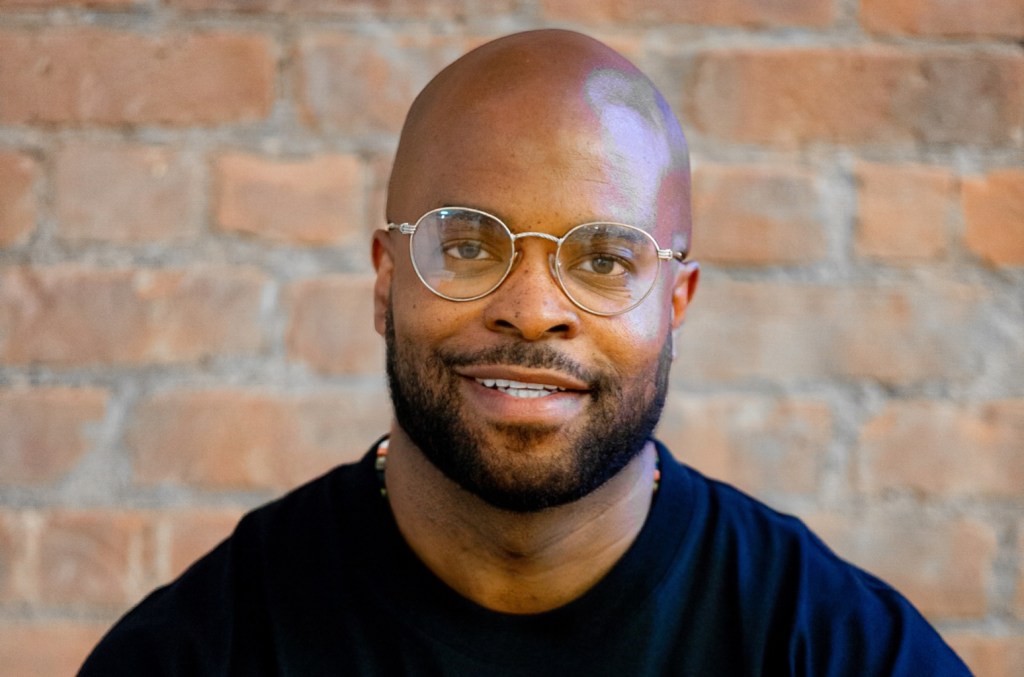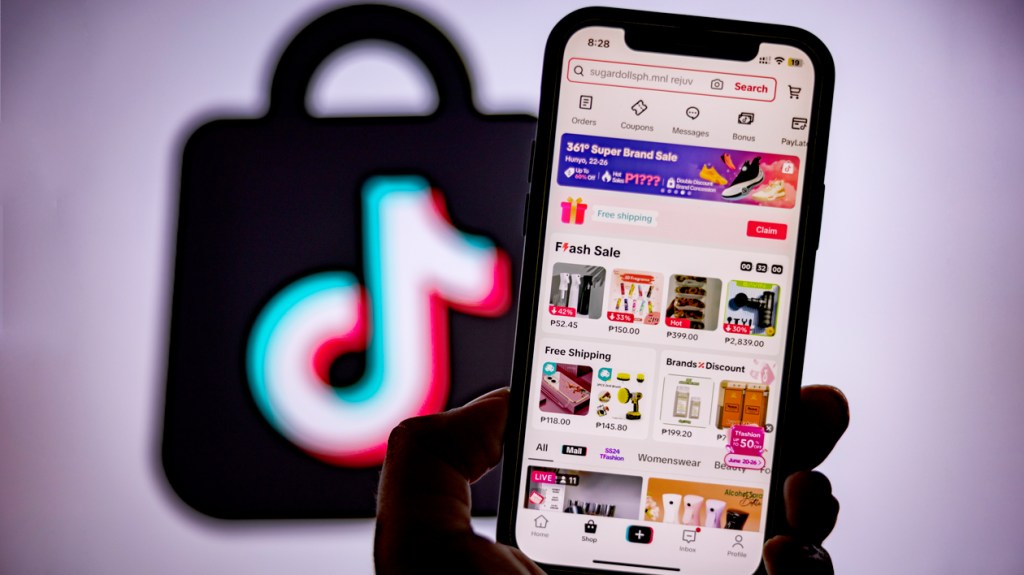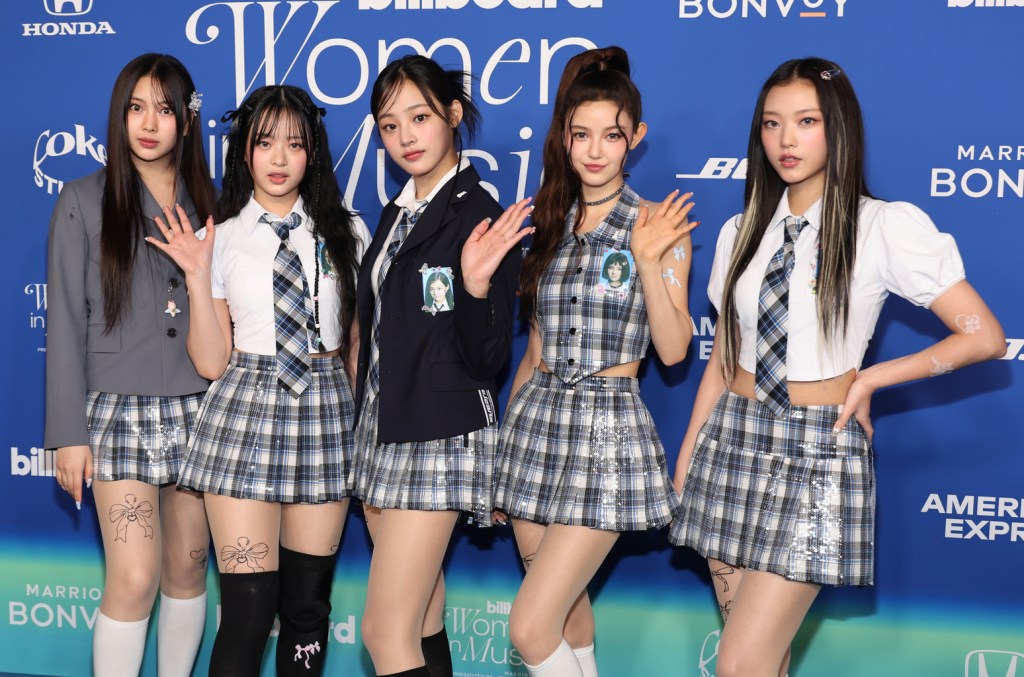Business
Page: 36
NIVA ‘25 — the fourth annual conference for the National Independent Venue Association, slated to take place June 22-25 in Milwaukee — is happening against the backdrop of some of the fiercest ticketing battles heating up around the country. According to NIVA executive director Stephen Parker, this year alone throughout the U.S., there have been nearly 70 bills introduced in almost 30 states pertaining to ticketing, and the conference is set to address the good, bad and the ugly amid the fight.
“Ticketing continues to be the singular focus,” Parker tells Billboard. “Ticketing is turning into the proxy battle in legislatures — federal, state and local — for the future of live performance.”
The conference will include panels such as “Battling Scalping Goes to Washington, D.C.”; “Turn the Tables: Make the Ticket Resale Market Work For You”; “How We Solve a Problem Like Chargebacks”; and ticketing network sessions, all of which will focus on different ticketing issues facing independent venues. The subject of ticketing will also be part of conversations about local and federal regulations and be weaved into various other panels.
Trending on Billboard
“This conference is an opportunity and a catalyst for us to come together, assess what’s happened this year — our wins and losses in states fighting against predatory resellers,” Parker continues, “and come out of this conference with a plan to make sure that any sort of anti-consumer policy that’s being pushed by predatory resale platforms and brokers, we have a renewed strategy to address it and make sure that the freedom that fans should have from deception and fraud continues to reign supreme.”
Poor ticket buying experiences are impacting fans’ desire to attend more shows and hiking prices so high that many can only afford a limited number of shows each year. And on the venue side, credit card chargebacks have become a major issue.
One of the conference discussions will be “what can we do to make sure that that credit card chargebacks don’t take us down,” Parker says. “Especially given that most of those chargebacks, it seems, are coming from predatory resellers that have sold the tickets and are just trying to maximize their profits that they’re making off the backs of small venues and independent artists.”
While the subject of ticketing will take center stage at the conference — which is being held across the city at different independent venues — the conversations will touch on many other topics. After every conference, NIVA reaches out to its 1,500 members and asks them what subjects they would like to see represented at the following year’s gathering — and the organization, through programming director Jamie Loeb, has managed work more than 100 issues that affect independent venue owners into this year’s program. Among them, NIVA ‘25’s programming will also address declining alcohol sales, the purpose of middle agents, the performing rights and licensing landscape, marketing, and breaking through in the attention economy.
“If I were to say what the theme of this conference [is], it’s ‘How do we break through?’” says Parker.
One of the key methods for breaking through is telling the story of independent venues and the impact they have on local communities, as well as globally. During the conference, NIVA plans to unveil extensive data on the economics of independent venues, which the association hopes will help tell that story.
“I can tell you that it’s a mixed bag,” Parker says of the data. “There’s such promise and optimism and potential growth for the sector, but that growth and optimism is suppressed by the continued threats of predatory resale and monopolies and inflation. We’re going to talk about what we do moving forward in terms of how we address those monopolies.”
Attendees will be able to learn about best practices for dealing with government entities, from city councils to state legislatures, as well as hear about how other countries are moving to save their own cultural spaces.
The association will also use the conference to detail the expansion of its collective bargaining agreements. While NIVA introduced its collective bargaining program nearly 18 months ago, its efforts are continuing to expand.
“At least a quarter of our members have taken advantage of this program, either for discounts for food, discounts for equipment, discounts for sound and lighting. We’re thinking beyond just the physical and going to services and fees and things that every venue has to pay every day,” says Parker. “We will be announcing some exciting new opportunities for our members on that front to try to make the cost of doing business lighter for them.”
NIVA ‘25 kicks off this Sunday with an opening keynote from My Morning Jacket’s Jim James. Other discussions will include producer Jimmy Jam, former Capitol Music Group CEO Michelle Jubelirer and High Road Touring founder Frank Riley. For more information on NIVA ‘25, head here.

A beverage startup that once planned to work with Rihanna’s brother will pay the Securities and Exchange Commission (SEC) more than $1 million for allegedly lying about nonexistent talks to develop an alcohol brand called “RiRi Rum” with the music icon.
Long Island-based beverage company The3rdBevco and its founder, Peter Scalise III, agreed to a $1.1 million SEC fine, according to court documents filed Tuesday (June 17). The settlement states that Scalise and The3rdBevco neither admit nor deny the allegations made by the federal investments regulator in a civil complaint docketed the same day.
In 2022, The3rdBevco publicly announced that it planned to bring on Rihanna’s brother, Rorrey Fenty, as a “senior strategic consultant” to develop a new alcohol brand called RiRi Rum in collaboration with the superstar singer and business mogul (born Robyn Rihanna Fenty).
Trending on Billboard
The SEC says that while it’s true that The3rdBevco did sign a letter of intent to hire Rorrey as a consultant, “there was never any deal, negotiation discussion or any other contact” with Rihanna or her management team for this supposed rum collaboration.
According to the complaint, The3rdBevco and Scalise repeatedly lied to investors throughout 2022 and 2023 that they were actively working with Rihanna on the rum product. Along the way, says the SEC, they used Rihanna’s “RiRi” trademark without her permission and included unauthorized Rihanna songs, images and even a fake signature attributed to the artist in investor presentations.
Neither Rihanna nor Rorrey is accused of participating in this illegal activity. While Rorrey did say he would try to facilitate a meeting between The3rdBevco and Rihanna if brought on as a consultant, the partnership agreement was never finalized, and Rorrey’s letter of intent was ultimately voided without him ever actually working for the company.
The SEC notes that Rorrey complained multiple times to Scalise that The3rdBevco should not have been using Rihanna’s images without authorization or touting the RiRi Rum brand without a deal in place.
In addition to claims about the fake Rihanna partnership, the SEC complaint also accuses The3rdBevco and Scalise of selling unregistered company shares and misusing nearly $900,000 worth of investor funds on personal expenses like tuition, mortgage payments and landscaping.
Mark David Hunter, a lawyer representing The3rdBevco and Scalise, told Billboard on Wednesday (June 18) that his clients “are pleased to have the matter resolved and behind them.”
Rorrey Fenty and reps for Rihanna did not immediately return requests for comment.
Like any good Swifties, Emily and Jamie Dryburgh keep finding connections between themselves and the biggest pop star in the world. As the twin sisters chat with Billboard over Zoom from their Nashville office, they rattle off a list of things they have in common with Taylor Swift: They are the same age, they’re enterprising professionals in the music industry, and their office in Nashville’s Midtown happens to be right across the street from Swift’s apartment.
That literal proximity to Swift is fitting, the 34-year-olds say, considering how she helped inspire them to pursue their careers. “The first time I heard a Taylor Swift song — as obvious and cliché as it is — I realized that she was not only writing her own songs but that she was a businesswoman,” Jamie recalls. “We were like, ‘There’s this girl out there who is our age, who feels like someone [we] would hang out with, and she’s doing it.’ It feels like she opened all these doors and all these opportunities for us.”
As the co-founders and co-CEOs of Young Music City, the leading Nashville media and lifestyle LLC focused on the LGBTQ+ community, the Dryburghs, much like Swift herself, also believe in doing work with a centralized purpose. What started as a music blog in 2016 has blossomed into a coterie of entertainment brands — including the RNBW Queer Music Collective, Country Proud and Girlcrush — advocating for greater representation of and visibility for LGBTQ+ members of Nashville’s music scene by promoting events and curating stages exclusively by and for queer people.
Trending on Billboard
The pair’s efforts have worked wonders for queer singer-songwriters like Adam Mac, who attended some of Young Music City’s earliest showcases as an aspiring country artist. “When I first moved here, the only visual I had of a path that a queer person could have in country music was Shane McAnally,” Mac says of the acclaimed songwriter. “I think Emily and Jamie really did lay the groundwork for feeding my confidence to say, ‘No, you can keep going.’ ”
Born and raised in the upstate New York city of Elmira, the Dryburgh sisters say they dreamed of moving out of the frigid Northeast to find their passion in the warmer Southern states. Applying to colleges in the South “behind our mom’s back,” they ended up moving to South Carolina to attend Coastal Carolina University in 2009. Once there, they started traveling all around the South, attending concerts and festivals across genres and falling even more in love with music.
Where other fans might try and meet the headliners before their festival sets, the Dryburghs instead chatted up tour managers and assistants, learning how the industry worked in the process. “We’d hang out with them and hear their stories, and they would be like, ‘Hey, you guys need to go be in the music industry,’ ” Emily recalls.
Jamie Dryburgh
Emily Dorio
The duo took their advice, moving to Nashville and transferring to Belmont University’s music business program in 2011. Upon graduating in 2013 — “on Taylor Swift’s birthday,” Jamie points out — they began working in as many different sectors of the industry as they could. Whether interning at small, independent record labels, directing A&R for boutique publishing houses or managing artists nominated by the Country Music Association (CMA) like Joshua Scott Jones, the Dryburghs sought to learn as much as possible through hands-on experience.
Along with that experience came some big personal realizations. Shortly after graduating from Belmont, Emily and Jamie both came out — and, in short order, noticed they identified with few others in the Nashville music scene.
Emily remembers a conversation with her boss at the now-closed publishing house Anchor Down Entertainment, where she worked as an intern shortly after graduating from Belmont. “I was like, ‘I have to tell you something and you might fire me, but I just need to let you know that I’m gay,’ ” she says. “[My boss] was super supportive and just started naming people: Shane McAnally, Brandy Clark, all these high-level people that were queer. We had no clue because there were no spaces for us.”
The longer the Dryburghs spent in Nashville, the more they saw how few opportunities queer artists had. So they took action. In 2016, the two transformed their old blog, Twin Love (“It’s so embarrassing,” Jamie says with a laugh, “it was the sh-ttiest blog”), into Young Music City, a fledgling media organization complete with a YouTube channel and Spotify playlist intended to give bubbling-under artists — many of whom identified as queer — a platform to share their music with a wider audience. “We had newsletters, we had filmed performances, we had all this stuff. We were just covering these bases before things like TikTok happened,” Emily says.
But the Dryburghs found their biggest success with the first subsidiary they launched from Young Music City, the RNBW Queer Music Collective. When they saw a friend perform at an open-mic event titled Big Gay Showcase, they were surprised by the sheer number of people who attended. So Emily and Jamie decided to try their hand at creating communal spaces for queer artists, scheduling monthly RNBW showcases at Tribe, a well-known Nashville gay bar.
“We’d pack the house, but there were only about 15 active, out artists who would come and perform,” Jamie says. After three years of staging their events, the pandemic hit. The sisters figured that their monthly showcase was over for good.
Emily Dryburgh
Emily Dorio
As they tell it, the opposite turned out to be true. During the course of the pandemic, as the Dryburghs scheduled livestreamed showcases for queer artists, they watched their online following grow as more talent started submitting themselves to be featured on the platform. The community that they had been seeking finally materialized. Once public-gathering restrictions were lifted in May 2021, the Dryburghs started booking weekly RNBW showcases at The Lipstick Lounge in Nashville’s East End with smashing success.
“Post-pandemic, a lot of people found themselves, came to Nashville, and there is now this huge world there that was not there before. We [are] easily booking six different artists for every show,” Emily says. “At this point, we’ve had almost 3,000 queer artists come through. It’s been amazing.”
Mac, who befriended the Dryburghs when he first moved to Nashville in 2012, says he has witnessed a shift in the city’s queer music scene — one he attributes, at least in part, to the work that the sisters put into creating a welcoming space. “Before RNBW, there was no place [in Nashville] for creative queers to come together and have a space to share,” he says. “It was so crucial for all of us.”
Having created their own community, the Dryburghs then set out to enlarge that space. As they built relationships around town with LGBTQ+ organizations like Nashville Pride and set up bigger stages for holding their events, they saw an opportunity. When the now-closed entertainment site Nash News approached them about putting on a country-focused concert in summer 2022, they realized that the proposed dates fell during the four days of CMA Fest. The festival was already announced and only two weeks away, but the Dryburghs took their shot, emailing their CMA and CMT contacts to see what was possible.
“We heard back from both of them within the day,” Jamie recalls. Soon, the Dryburghs were hopping on Zoom calls with executives from both organizations, pitching them on CMA Fest’s first Pride-themed stage. When asked whom they could feature there with such little lead time, they pointed to the now-vast catalog of artists they’d worked with through RNBW.
Within a few meetings, they had successfully created Country Proud, the first-ever queer-focused event at a U.S. country music festival. “The audience response was massive — a lot of people who didn’t know what [Country Proud] was still came through because we were able to bring in such great talent,” Emily says.
The show’s debut in 2022 was such a success that, in subsequent years, CMA Fest promoted Country Proud from a sponsored activation to its own main stages, bringing in artists like Brooke Eden, Angie K, Shelly Fairchild and Mac, who remembers going from local showcases to his first crowd of thousands thanks to Emily and Jamie’s advocacy. “They got me my first major stage at CMA Fest,” he says. “To see where all of this started to where it’s at now has been a privilege.”
Emily (left) and Jamie Dryburgh photographed on May 28, 2025 at The Fallyn in Nashville.
Emily Dorio
But 2025 marks the first year since the Dryburghs helped make history with Country Proud that CMA Fest won’t feature the event they created — a fact that they attribute, in part, to political pressures to reduce inclusive programming like Country Proud. “We anticipated it might be weird this year,” Emily says with a sigh.
But the sisters are taking this difficult news in stride. After all, they point out, Young Music City started with grassroots organizing. “When these partners can’t come in and when there’s things that are against their control, that’s where our work comes back in,” Emily says. “If no one else is going to do it, then it has to be us. We can put on a show with our eyes closed at this point, so when organizations back out, it’s important to say, ‘OK, we’re stepping in.’ ”
Jamie also says the music industry should take note of what has happened when major businesses have cut their diversity programs. As an example, she cites Target: After the retailer faced heavy criticism from right-wing activists over its 2023 Pride collection, the store rolled back many of its products supporting LGBTQ+ inclusivity for Pride Month 2024. Four days after Donald Trump’s second inauguration, the company announced it was ending its diversity, equity and inclusion programs; in the following months, its foot traffic and sales plummeted.
“It’s a losing strategy,” Jamie says of anti-DEI efforts. “A large part of the population is somewhere in the queer community, and leaving them out doesn’t serve your business.” What might the music industry learn from these cautionary tales? “Think bigger than just today or tomorrow. Think about years down the road,” she suggests. “This is a much bigger conversation than just your bottom line.”
After growing Young Music City from a small online blog into one of the most active LGBTQ+ music organizations in Nashville, the Dryburghs are now looking at how to take their talents national. Emily lists just a few of their long-term goals, like opening an inclusive venue in Nashville or organizing a RNBW Queer Music Collective national tour.
And all the while, they will remain committed to creating connections for queer artists in need of support. “We’ve had artists like Kelsea Ballerini and JoJo and Julien Baker in the audience at RNBW shows,” Emily says. “Our artists have met co-writers through these shows, met their spouses through these shows, and they keep coming because they know that this is a place where they can come and it’s safe.”
The sisters smile at each other. “That’s the ultimate goal,” Jamie says. “Just making our home a safer place.”
This story appears in the June 21, 2025, issue of Billboard.
Independent music platform Create Music Group (CMG) has formed a joint venture with Star Trak Entertainment and its co-founder Rob Walker, Billboard can exclusively report. Under the terms of the new partnership, CMG will provide worldwide distribution, technology and marketing services to Star Trak. As noted in the press release announcing the agreement, the joint […]
President Donald Trump is set to sign an executive order this week extending the deadline for TikTok’s Chinese parent company to divest the popular video-sharing app, marking the third such extension. The move comes after a previous 75-day reprieve granted in April, which aimed to keep TikTok operational in the U.S. while a potential sale […]
The Seoul High Court has sided with ADOR, the label behind K-pop powerhouse NewJeans, in an ongoing legal dispute that’s captivated fans and industry insiders alike.
On Tuesday (June 17), a panel of judges — Hwang Byung-ha, Jeong Jong-gwan, and Lee Kyun-yong — upheld a prior injunction barring the five-member group, currently promoting as NJZ, from pursuing independent activities outside of their exclusive contract with ADOR.
The court rejected the group’s appeal, stating there were no sufficient legal grounds to overturn the original decision, which was put in place to maintain the status quo of the contract.
Trending on Billboard
In their filing, the members of NewJeans argued that HYBE, the parent company of ADOR, had broken the trust central to their contract — pointing to HYBE’s internal audit and the controversial dismissal of former ADOR CEO Min Hee-Jin. They also cited a lack of support and neglect from the label as further grounds for appeal.
However, the court disagreed, finding no contractual clause that guaranteed Min’s position as CEO or producer. Judges emphasized that while the leadership dispute may have created tension, it did not invalidate the binding nature of the agreement.
The court further noted that HYBE had acted in good faith by establishing ADOR specifically for NewJeans and providing major support for the group’s debut and rise to stardom. Even after Min’s dismissal, HYBE reportedly offered to keep her involved in the group’s creative direction and later reinstated her as an internal director of ADOR.
In response to concerns about inactivity and career disruption, the judges concluded that any resulting harm stemmed from the members’ refusal to fulfill contractual obligations — not from actions by the company. They also emphasized that the contract had been individually negotiated and could not be considered an unfair, one-size-fits-all agreement under Korean law.
The ruling highlighted the potential financial damage to ADOR if the group were allowed to unilaterally terminate the agreement, a risk the artists had acknowledged at the outset. The seven-year term, the court noted, was clearly agreed upon by all parties.
With the decision, the court reaffirmed ADOR’s legal authority over NewJeans’ management and effectively shut down the group’s attempt to gain independent control of their activities marking a significant chapter in a legal battle that could reshape how artist-label contracts are viewed in the K-pop industry.
Wes Donehower has been promoted to senior vp of A&R for both Mercury Records and Big Loud Records, in recognition of the alliance between the two labels. He was most recently senior vp of A&R at Republic Records. The New York-based Mercury and Nashville-based Big Loud have worked closely together on artists including Morgan Wallen as […]
Brazilian sertanejo artist Gustavo Mioto signed with WME, which will focus on expanding his reach in Latin and North American markets. Over his career, the singer-songwriter has released nine albums and collaborated with Anitta, Jorge & Mateus, Fabio Jr. and more.
Tuscaloosa, Ala., band Gideon signed with Sumerian Records, which released the group’s latest single, “Til the Wheels Fall Off.” Gideon has several festival dates coming up, including at Vans Warped Tour, Louder Than Life and the New England Metal & Hardcore Fest.
Ty Herndon signed a three-album deal with Club44 Records. He just released a new version of his 1995 hit “What Mattered Most” as a duet with LeAnn Rimes. Herndon is also set to release the upcoming album Thirty, which will celebrate his three decades in country music. — Jessica Nicholson
Trending on Billboard
Country singer-songwriter Jenna Davis signed with UTA for touring. She will be repped at the agency by Jeffrey Hasson and Lauren Holland. Davis is set to release her debut album, Where Did That Girl Go?, via SMACKRecords on June 27.
Los Angeles-based artist management company MLennial signed American DJ and producer GorillaT. This year, the rising artist is set to play Bonnaroo, Electric Forest, Los Lands and more.
Chinese rapper jackzebra signed to SURF GANG Records, the evilgiane-led artist collective and record label based in New York. Jackzebra recently released Above & Beyond, a 34-track tape written during a visit to the U.S. SURF GANG recently released his new single, “Givenchy,” with evilgiane.
Big Machine Records signed country singer-songwriter Cole Goodwin. His first song for the label, “Girlfriend’s Got a Boyfriend,” was released on Friday (June 13). He’s slated to open select dates on Luke Bryan’s summer tour.
Indianapolis, Ind., “fake emo” band Summerbruise signed to SideOneDummy Records, which released the group’s new single, “Never Bothered.” The band will play a short U.S. tour this summer.
Booking agency Main Attraction Management added bluegrass artist Caroline Owens to its roster. Owens’s most recent single, “You’ve Still Got It,” has gained traction on SiriusXM’s Bluegrass Junction, while Owens has garnered nominations from the International Bluegrass Music Association (IBMA) and the Society for the Preservation of Bluegrass Music of America (SPBGMA). She’s signed with Billy Blue Records and Billy Blue Publishing, and is repped by Jules Wortman of Wortman Works Media & Marketing, who serves as both manager and head of public relations. — Jessica Nicholson

Justin Baldoni is continuing to push for access to Blake Lively’s text messages with Taylor Swift in litigation over the movie It Ends With Us, saying the communications could reveal whether the actress is owed damages for emotional distress from alleged sexual harassment and retaliation.
Swift became a figure in the messy legal dispute last month, when Baldoni and his production company, Wayfarer Studios, subpoenaed the pop superstar for her communications with Lively. Baldoni later dropped the Swift subpoenas but is now seeking the text messages directly from Lively — a move that Lively’s lawyers criticized in a court filing last week as designed to seize on Swift’s star power and “prop up a public relations narrative.”
In a response filing on Tuesday (June 17), Baldoni’s lawyers say these texts are indeed relevant to disproving Lively’s allegations that Baldoni sexually harassed her on the set of It Ends With Us and then orchestrated a retaliatory smear campaign when she complained.
Trending on Billboard
Team Baldoni claims Lively’s own discovery disclosures identify Swift, her longtime friend, as someone with knowledge about what she went through. The actor-director’s lawyers also say Swift would know whether Lively actually suffered emotional distress because they socialized amid the debacle, including by stepping out for a double date a few months after the release of It Ends With Us this past fall.
The latter point is key because if Lively shows that Baldoni’s conduct harmed her emotionally, she could be entitled to a higher monetary award in the case.
“Although we appreciate the positive influence Ms. Swift’s music has had on her worldwide audience, it was Ms. Lively and not the Wayfarer Parties that contemporaneously inserted Ms. Swift into this dispute, and Ms. Lively cannot use Ms. Swift’s stardom to withhold evidence,” write Baldoni’s lawyers.
Spokespeople for Lively declined to comment on Baldoni’s latest court filing. Last week, they said that the continued attempt to drag Swift into the dispute “reflects a public unraveling of epic proportions” and “serves only to distract” from the recent dismissal of Baldoni’s counter-lawsuit accusing Lively, her husband Ryan Reynolds and others of defamation.
Swift’s reps have not commented on the matter since Baldoni first subpoenaed her. In a statement in May, they said the singer had no involvement in It Ends With Us and that the move was “designed to use Taylor Swift’s name to draw public interest by creating tabloid clickbait instead of focusing on the facts of the case.”
Meanwhile, Lively served a subpoena of her own last week on music mogul Scooter Braun, a longtime public opponent of Swift’s. Lively is seeking information from Braun about the alleged public relations takedown orchestrated by The Agency Group PR, a controlling stake of which is reportedly owned by Braun’s company, HYBE America.

THE BIG STORY: Years after it was first filed, the U.S. Supreme Court on Monday declined to revive a lawsuit claiming Ed Sheeran’s 2014 hit “Thinking Out Loud” infringed Marvin Gaye‘s famed 1973 jam “Let’s Get It On.”
The decision is the latest win for Sheeran in a nine-year legal odyssey over two songs that do, in fact, sound pretty similar to many listeners. Spin described “Thinking” as “an incredibly obvious successor” to Gaye’s song, and countless YouTube accounts mashed them up. Even Sheeran himself seemed to agree: In an infamous video clip, he was captured toggling between the two at a 2014 concert.
He was sued over those similarities in 2016 by the daughter of Ed Townsend, who co-wrote the 1973 tune with Gaye, but that case ended with a high-profile jury verdict that said Sheeran and his co-writers had independently created their song. He was sued again in 2018 by Structured Asset Sales (SAS), an entity owned by industry executive David Pullman that controls a different stake in Townsend’s copyrights. But in November, a federal appeals court tossed that case, too, ruling the songs share only basic “musical building blocks” that all songwriters are free to use.
Trending on Billboard
With Monday’s move by SCOTUS, which will allow that decision to stand, is Sheeran’s long copyright nightmare finally over? Not quite yet.
Back in 2020, Pullman’s company filed yet another case over “Thinking” — something of a creative gambit to get around shortcomings of the earlier lawsuits. A judge had ruled that Townsend’s copyrights covered only the basic sheet music to “Let’s Get It On,” and not Gaye’s famous recorded version you’ve heard countless times. So SAS’s lawyers filed for an entirely new copyright on the recorded version and then sued Sheeran for infringing it.
Can they do that? Unclear. The newer lawsuit has been paused for years while the earlier case played out in court, meaning a judge has not yet ruled on whether the get-a-new-copyright maneuver is legally viable in the first place. But after Monday’s move by the Supreme Court, the case will now be reopened for action.
Speaking to Billboard on Monday, each side previewed the battle ahead. Pullman said Sheeran and his co-defendants “fear” the sound recording and vowed that his newer case “will now go forward.” Meanwhile, Sheeran’s attorney, Donald Zakarin, stressed that his client had already been cleared by a jury of his peers.
“Pullman’s completely unauthorized and improper purported registration of the Marvin Gaye recording of ‘Let’s Get It On,’ 50 years after it was created, will not change that fact,” Zakarin said. “If he truly believed that the second case he filed was so compelling — which it is not — he would not have spent the last two years pursuing his failed first case.”
You’re reading The Legal Beat, a weekly newsletter about music law from Billboard Pro, offering you a one-stop cheat sheet of big new cases, important rulings and all the fun stuff in between. To get the newsletter in your inbox every Tuesday, go subscribe here.
Other top stories this week…
SMOKEY ROBINSON UPDATE – Facing a rape lawsuit from his former housekeepers, the Motown legend argued in new court filings that his accusers are trying to slow-walk the case to gain maximum leverage for an extortionate settlement payout, including by dealing a financial blow to his ongoing tour. His lawyers say attorneys for the housekeepers want to “let the lawsuit linger publicly while the Robinsons have to live every day under the unfair specter of public opinion.”
IT NEVER ENDS – Amid their bruising legal battle over the movie It End With Us, Blake Lively asked a federal judge to block Justin Baldoni’s continued efforts to see her texts with Taylor Swift, arguing her nemesis shouldn’t be allowed to drag the pop superstar into the court battle just to generate “sensational headlines.” Separately in the same messy fight, Lively moved to subpoena music executive Scooter Braun, seeking to find out what the HYBE America boss knows about Baldoni’s alleged smear campaign against her.
DIDDY TRIAL CONTINUES – The sex-trafficking trial of Sean “Diddy” Combs continued into a sixth week, as the prosecution nears the conclusion of its case. Week Five was dominated by testimony from “Jane,” a former girlfriend who says the star coerced her into taking part in the “freak-off” sex parties at the heart of the case — and by a brief moment where Ye (formerly Kanye West) stopped by the courthouse. Week Six kicked off with the judge dismissing a juror for giving inconsistent answers about where he lives — a ruling that rejected warnings by Combs’ attorneys that the dispute was a “thinly veiled effort to dismiss a Black juror.”
MORE AI LAWSUITS – Artificial intelligence music startups Suno and Udio were hit with new copyright lawsuits — this time, proposed class actions on behalf of independent artists who have been “left without a seat at the table” in the high-profile litigation filed by Universal Music, Warner Music and Sony Music. The cases, filed by a country singer named Tony Justice on behalf of “thousands” of indie artists, came weeks after news broke that the majors were negotiating potential settlements with the two tech firms that would see them license their music for AI training.
MEGAN GAG ORDER – A federal judge issued a gag order in Megan Thee Stallion’s defamation lawsuit against gossip blogger Milagro Gramz over the Tory Lanez shooting, barring both sides from talking about the case. The ruling cited warnings from the star’s lawyers that Gramz’s ongoing posts about Megan had sparked “severely critical and derogatory comments” about the star that could potentially “incite violence.”
R. KELLY WANTS OUT – The disgraced R&B star asked a federal judge to cut short his 30-plus-year sentence for racketeering, sexual abuse and child pornography, claiming jail officials tried to solicit a member of the Aryan Brotherhood prison gang to kill him. In later filings, Kelly’s lawyers claimed he’d been placed in solitary confinement as retaliation, and that he’d been rushed to the hospital after officials gave him a lethal quantity of his medications. Prosecutors denied the allegations, calling them “deeply unserious” and the “behavior of an abuser and a master manipulator” on full display: “This court should not allow Kelly to turn its docket into a grocery store checkout aisle tabloid,” prosecutors wrote.
50 CENT HORROR FIGHT – The producers of SkillHouse, a horror movie starring 50 Cent, responded to the rapper’s recent lawsuit aimed at blocking its premiere next month, blasting the case as “a baseless and last-minute shakedown.” Fifty claims he never signed off on the movie and hasn’t been paid, but the producers argued that they have “a mountain of documentary evidence” that he did, in fact, agree to appear in and promote the flick.
DOXXING DISPUTE – A Los Angeles judge ruled that the hip-hop powerhouse Top Dawg Entertainment must face claims that the company “doxxed” two women after they sued the record label for sexual harassment and assault. The judge refused to dismiss allegations that the company broke a newly enacted California law outlawing doxxing — revealing someone’s identity non-consensually — by including the names of the two “Jane Doe” accusers in a response statement that called the lawsuit a “shakedown.”
MANSLAUGHTER PLEA – The Atlanta rapper Silento, best known for his 2015 chart-topper “Watch Me (Whip/Nae Nae),” was sentenced to 30 years in prison after pleading guilty to fatally shooting his cousin in 2021. Facing a looming trial, the 27-year-old rapper avoided murder charges by admitting to voluntary manslaughter, aggravated assault, gun possession and concealing a death, crimes he said he’d committed while mentally ill.
THE SARCASM DEFENSE – Karol G and UMG fired back at a copyright lawsuit claiming she lifted key elements of “Gatúbela,” a track on her chart-topping album Mañana Será Bonito, from an earlier song. In the filing, they denied claims that one of the song’s producers effectively admitted to the theft in an Instagram comment — arguing that he posted it “sarcastically” and that it clearly wasn’t an admission of liability.
TORTIOUS REUNION? Música mexicana singer-songwriter Codiciado filed a lawsuit against his old record label, Rancho Humilde, and former bandmates in the ensemble Grupo Codiciado, claiming they stole his intellectual property by getting the band back together under the name Los Codicia2 after he went solo.
DISCRIMINATION DEAL – Nas’ record label and media company, Mass Appeal, inked a settlement with a white former executive, Melissa Cooper, who claimed that she was the target of discrimination and forced out because of her race. The deal, the terms of which were not disclosed, will resolve a lawsuit in which Cooper claimed that she had been subject to animosity because she was a “white woman working in hip-hop.”
PHOTO FIGHT – Robin Thicke was hit with a copyright lawsuit for allegedly posting paparazzi pictures of himself on Instagram without paying to license the images. The case, filed by celebrity photo agency BackGrid USA, is the latest in a string of such lawsuits over artists posting themselves to socials — cases that have targeted Jennifer Lopez, Miley Cyrus, Dua Lipa, Justin Bieber and others.

 State Champ Radio
State Champ Radio 







